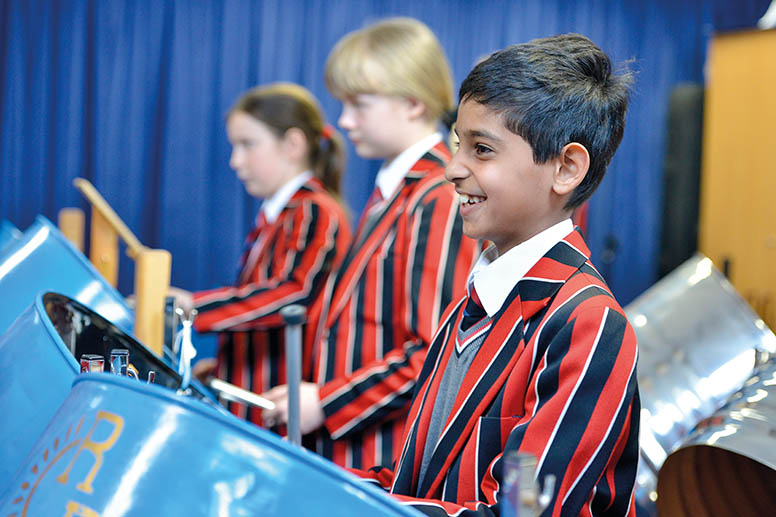James Gorick, Director of Music at St Faith’s, Cambridge, looks to challenge common perceptions of class-taught music
“Reading, writing and numeracy must come before music” – so said David Cameron in a pre-election interview. It is comments like these that stoke the negative stigma surrounding class-taught music; and yet music is a universal language that is so multifaceted it almost defies categorization.
The Prime Minister isn’t the only one. A headmaster at a London grammar school recently referred to music as a ‘minor’ subject in a BBC interview. One of the greatest aspects of music in education is that it encompasses the ‘major’ subjects, offering alternative access to numeracy and literacy, whilst engaging pupils creatively and emotionally.
An internet search of music education reveals countless studies documenting its benefits. There are many cognitive development attributes to musical education – from harnessing fine motor and muscular skills, developing memory, learning numerical patterns, excelling in reading (sometimes numerous lines simultaneously and in foreign languages), researching historical and cultural aspects of the subject; to links with personal, social, health and citizenship (PSHCE), as well as developing strong emotional responses to musical stimuli.
Of course you cannot expect everyone to enjoy music. But, by equipping children with the ability to express their sensory observations in an articulate and thoughtful manner, it is possible to inspire within even the most musically reluctant children, a well-rounded and assured insight into what they listen to.
At St Faith’s, pupils are given a practical foothold in a range of musical disciplines, spanning choral, classical, jazz, hip hop, world and rock. By offering children the opportunity to make a fun, diverse and stimulating start in music, it is possible to guide their interests into areas of the art form they would otherwise have disregarded. Whilst it might be the case that class-taught music marginalizes some as others progress at a faster pace, we ensure that every child’s musical talents, from group singing to PC-based music production, are nurtured and allowed to flourish in a variety of ways.
A wealth of concerts, music tours, recitals and in-class achievements helps support individuals at every level, without leaving anyone behind. For some this might be achieving a distinction in an ABRSM (exam board of the Royal Schools of Music) exam, whilst for others it might be playing a tambourine in time with a group. Our Year 7 pupils will soon be embarking upon an exciting, year-long collaborative creative arts venture, earning a special award at the end. They will research composers, artists and playwrights, using the Internet as a resource for developing certain skills and gathering relevant information. Pupils will then share their research and refined understanding of their topic with their peers, to take them through the process of analysing and imparting information to others.
Across Creative Arts, we seek to have our pupils eliciting from one another, independent responses to art by creating, composing or writing themselves. As well as being a profoundly expressive medium in which we have seen pupils emerge from their shells for the first time, music offers a tangible gateway to a career in a creative, technological and cutting-edge multi-billion dollar global industry.
With over 115,000 full-time jobs helping contribute to a GVA (Gross Value Added) of more than £3.8bn in the UK music industry alone, music must be perceived as a future-focused subject for the current generation considering its careers options. Literacy and numeracy are vital, but wouldn’t you want your child to experience the joy of discovering and learning within this versatile ‘minor’ subject?
As the author Hans Christian Andersen surmises, “Where words fail, music speaks.”

